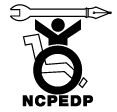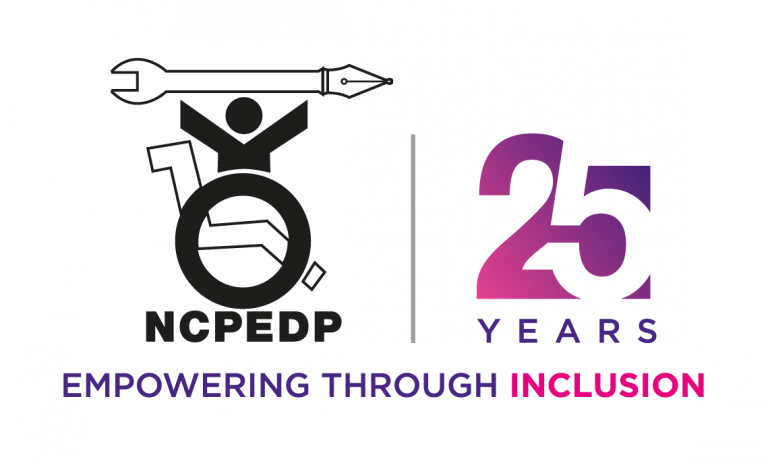National Centre for Promotion of Employment for Disabled People
![]() Disabled People Call for Political Recognition and Action
Disabled People Call for Political Recognition and Action
Conservative estimates put the population of persons with disabilities in India at 70-100 million. Yet, it is only a minuscule percentage of the population that has been seen in the mainstream of any aspect of life in the country; be it the workforce, education or anything else. Any study undertaken to determine the reason for this would point to one direction and that would be the lack of access.
A cursory study of history too would reveal that all great movements arose from the very lack of access to basic facilities, discrimination and the fight for one’s dignity and belief that all humans are equal and born free. The disability rights movement advocates equal access for people with disabilities to social, political, and economic life which includes not only physical access but access to the same tools, services, organisations and facilities which we all pay for.
Over the years, Accessibility
- Has come to occupy the most identifiable cause that has unified the global approach towards disability – across social, political and economic lives of people with disabilities.
- Has become the most fundamental cause that any person with disability identifies with, irrespective of the disability.
- Has become the fulcrum to the disability rights movement globally.
Access, therefore, is an issue that cuts across disabilities and sectors and forms the very basis of empowerment of people with disabilities. A concept that is intrinsic to any kind of access is ‘Universal Design’, which means a design that is usable to the greatest extent possible by everyone, regardless of age, ability, or situation. This could mean the built environment, technology, transport, and so on. Universal Design accommodates people with disabilities, older people, children, and others who are non-average in a way that is not stigmatizing and benefits all users. The seven Principles that describe characteristics that make designs universally usable are:
- Equitable Use
- Flexibility in Use
- Simple and Intuitive Use
- Perceptible Information
- Tolerance for Error
- Low Physical Effort
- Size and Space for Approach and Use
In order to spread awareness on Universal Design and to popularise this concept, NCPEDP, in association with Mphasis, instituted The NCPEDP – Mphasis Universal Design Awards in 2010. These Awards are given away every year to those who have been doing exemplary work towards the cause of accessibility and thus ensuring a life of equality and dignity for people with disabilities. As of now, the Awards are limited to work in India.
The Awards cover accessibility in the following fields:
- Built Environment
- Transport
- Information and Communication Technology
- Services
- Aids and Appliances
- Public Policy and Advocacy
The Awards are given under four categories:
CATEGORY A: PERSONS WITH DISABILITIES
The work that the person has done can be in policy framework, grass-root level implementation, design and development, access audits, or even the rights movement/advocacy.
Every year, Awards in this category are given out to 3 people across the country.
CATEGORY B: WORKING PROFESSIONALS
She/he may be an employee of an educational institute/NGO/corporate/ government body that has taken up the cause, or may be a consultant or freelancer who has devoted her/his time for the cause. Her/his individual contribution to the cause is a major reason for the success achieved by the organisation/firm/movement. She/he may also be an individual who is involved in the cause independent of any organisational support and has achieved significant success in the core objective of gaining accessibility for disabled people.
Awards in this category are given out to ensure that many dedicated people who have involved themselves in the cause get due recognition. This will not only help in sensitising the community, but will also encourage young minds to join the cause as a career option.
Every year, Awards in this category are given out to 3 people across the country.
CATEGORY C: COMPANIES/ORGANISATIONS
Companies/organisations that have implemented either/all of these within their organisations, which has led to them recruiting or serving people with disabilities and providing them equal opportunities to participate to the best of their abilities. These companies/organisations can be a role model for the rest of the society, and recognising their efforts and giving them the encouragement will help the cause to reach out to many more.
These can be any type of an educational institute/NGO/corporate/government body – private sector, public sector, joint sector, SME or even proprietorship/partnership firms. The selection criteria will not only be for adopting accessibility policies, but also for implementing them at the workplace.
Every year, Awards in this category are given out to 4 companies/organisations across the country.
NCPEDP –Mphasis Javed Abidi Public Policy Awards
About The Partners
National Centre for Promotion of Employment for Disabled People
About Mphasis
 (BSE: 526299; NSE: MPHASIS) applies next-generation technology to help enterprises transform businesses globally. Customer centricity is foundational to Mphasis and is reflected in the Mphasis’ Front2Back
(BSE: 526299; NSE: MPHASIS) applies next-generation technology to help enterprises transform businesses globally. Customer centricity is foundational to Mphasis and is reflected in the Mphasis’ Front2Back  ™ Transformation approach. Front2Back™ uses the exponential power of cloud and cognitive to provide hyper-personalized (C=X2C2 TM=1) digital experience to clients and their end customers. Mphasis’ Service Transformation approach helps ‘shrink the core’ through the application of digital technologies across legacy environments within an enterprise, enabling businesses to stay ahead in a changing world. Mphasis’ core reference architectures and tools, speed and innovation with domain expertise and specialization are key to building strong relationships with marquee clients.
™ Transformation approach. Front2Back™ uses the exponential power of cloud and cognitive to provide hyper-personalized (C=X2C2 TM=1) digital experience to clients and their end customers. Mphasis’ Service Transformation approach helps ‘shrink the core’ through the application of digital technologies across legacy environments within an enterprise, enabling businesses to stay ahead in a changing world. Mphasis’ core reference architectures and tools, speed and innovation with domain expertise and specialization are key to building strong relationships with marquee clients. 



